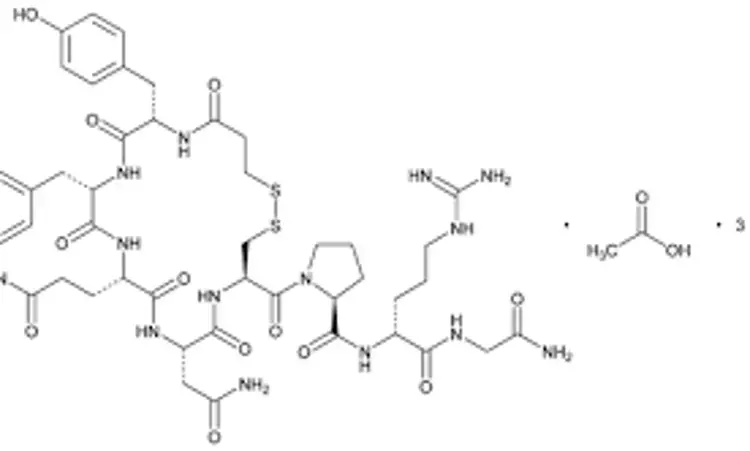- Home
- Medical news & Guidelines
- Anesthesiology
- Cardiology and CTVS
- Critical Care
- Dentistry
- Dermatology
- Diabetes and Endocrinology
- ENT
- Gastroenterology
- Medicine
- Nephrology
- Neurology
- Obstretics-Gynaecology
- Oncology
- Ophthalmology
- Orthopaedics
- Pediatrics-Neonatology
- Psychiatry
- Pulmonology
- Radiology
- Surgery
- Urology
- Laboratory Medicine
- Diet
- Nursing
- Paramedical
- Physiotherapy
- Health news
- Fact Check
- Bone Health Fact Check
- Brain Health Fact Check
- Cancer Related Fact Check
- Child Care Fact Check
- Dental and oral health fact check
- Diabetes and metabolic health fact check
- Diet and Nutrition Fact Check
- Eye and ENT Care Fact Check
- Fitness fact check
- Gut health fact check
- Heart health fact check
- Kidney health fact check
- Medical education fact check
- Men's health fact check
- Respiratory fact check
- Skin and hair care fact check
- Vaccine and Immunization fact check
- Women's health fact check
- AYUSH
- State News
- Andaman and Nicobar Islands
- Andhra Pradesh
- Arunachal Pradesh
- Assam
- Bihar
- Chandigarh
- Chattisgarh
- Dadra and Nagar Haveli
- Daman and Diu
- Delhi
- Goa
- Gujarat
- Haryana
- Himachal Pradesh
- Jammu & Kashmir
- Jharkhand
- Karnataka
- Kerala
- Ladakh
- Lakshadweep
- Madhya Pradesh
- Maharashtra
- Manipur
- Meghalaya
- Mizoram
- Nagaland
- Odisha
- Puducherry
- Punjab
- Rajasthan
- Sikkim
- Tamil Nadu
- Telangana
- Tripura
- Uttar Pradesh
- Uttrakhand
- West Bengal
- Medical Education
- Industry
Desmopressin may not reduce hematoma expansion in ICH associated with antiplatelet therapy

Desmopressin administration in patients with spontaneous antiplatelet-associated ICH is not associated with a reduction in poor outcomes, according to a recent study published in the Journal of the Neurological Sciences
Researchers conducted a study to evaluate the impact of desmopressin acetate (DDAVP) on poor outcomes, hematoma expansion, and adverse events in patients diagnosed with a non-traumatic, antiplatelet-associated intracranial hemorrhage (ICH).
This was a multicenter, retrospective, propensity-matched cohort study comparing DDAVP to control in patients diagnosed with a non-traumatic ICH previously on antiplatelet therapy. Notable exclusion criteria included admission to trauma service, subarachnoid hemorrhages, confounding coagulopathic factors, and hematoma evacuation. Poor outcome, defined as discharge to hospice or in-patient mortality, was the primary outcome. Secondary outcomes included intracranial hematoma expansion and occurrence of adverse events, which included hyponatremia and thromboembolic events.
Results:
A total of 49 patients receiving DDAVP were compared to 107 controls in the unmatched cohort. Thirty-seven patients treated with DDAVP and 55 controls were included in the propensity-matched analysis, which was adjusted for age, ethnicity, history of diabetes, receipt of platelet transfusion, and thromboembolism prophylaxis. Poor outcome (16.2% DDAVP vs 29% control, p = 0.13), rates of hematoma expansion (11.8% DDAVP vs 11.1% control, p = 0.99), and adverse events (21.6% DDAVP vs 20% control, p = 0.99) were statistically similar between the matched groups.
Thus, DDAVP administration in patients with spontaneous antiplatelet-associated ICH was not associated with a reduction in poor outcomes, hematoma expansion, or an increase in adverse events. Use of DDAVP in this patient population appears to be safe. Larger prospective studies are warranted to evaluate DDAVP utility in this patient population.
Reference:
Effect of desmopressin acetate on acute spontaneous intracranial hemorrhage in patients on antiplatelet therapy J. Neurol. Sci. 2022 Jan 06;434(2022)120142, J McManus, J Ferreira, GM Jones, KS Smetana, M Smith Condeni, K Berger, C Witenko, C Smotherman, S Gautam, MA Pizzi, MJ Erdman.
https://pubmed.ncbi.nlm.nih.gov/35081458/
Dr. Shravani Dali has completed her BDS from Pravara institute of medical sciences, loni. Following which she extensively worked in the healthcare sector for 2+ years. She has been actively involved in writing blogs in field of health and wellness. Currently she is pursuing her Masters of public health-health administration from Tata institute of social sciences. She can be contacted at editorial@medicaldialogues.in.
Dr Kamal Kant Kohli-MBBS, DTCD- a chest specialist with more than 30 years of practice and a flair for writing clinical articles, Dr Kamal Kant Kohli joined Medical Dialogues as a Chief Editor of Medical News. Besides writing articles, as an editor, he proofreads and verifies all the medical content published on Medical Dialogues including those coming from journals, studies,medical conferences,guidelines etc. Email: drkohli@medicaldialogues.in. Contact no. 011-43720751


